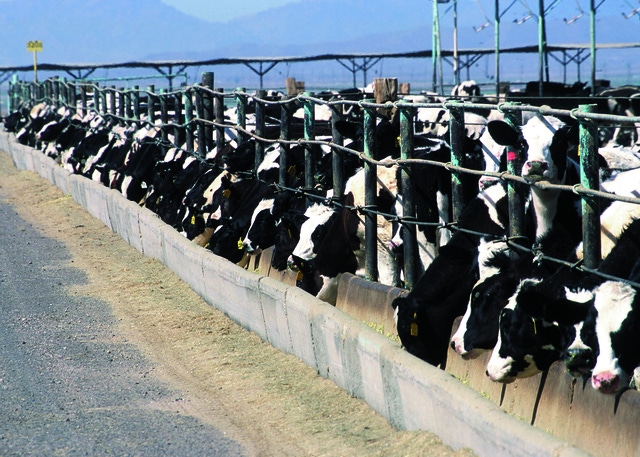EPA finalizes livestock emissions reporting exemptions
Rule exempts agricultural producers from notifying local responders under EPCRA and CERCLA standards.
June 4, 2019

U.S. Environmental Protection Agency Administrator Andrew Wheeler signed a final rule June 4 amending the emergency release notification regulations under the Emergency Planning & Community Right-to-Know Act (EPCRA). The amendments clarify that reporting of air emissions from animal waste at farms is not required under EPCRA.
The final rule comes as first responders across the county have repeatedly reminded the agency that community-specific protocols are determined between local responders and animal producers well in advance of emergencies. These strong partnerships provide a platform for resolving issues when they arise without the need for a national, one-size-fits-all approach.
“This final rule provides clarity and certainty to the regulated community that animal waste emissions from farms do not need to be reported under EPCRA,” Wheeler said. “This action eliminates an onerous reporting requirement and allows emergency responders and farmers to focus on protecting the public and feeding the nation, not routine animal waste emissions.”
“The goal of emergency response officials and local emergency planning committees (LEPCs) is to prepare communities for emergency threats related to hazardous chemical releases. Such emergency threats do not include 'best guess' reporting on day-to-day emissions on farms and animal operations,” said Tim Gablehouse, president of the National Association of SARA Title III Program Officials (NASTTPO). “The focus of LEPCs should be and is on chemical hazards that present meaningful risk of harm to community members and first responders. We look forward to working on enhanced coordination and cooperation between all community members to improve preparedness for hazardous chemical releases.”
The changes to emergency release reporting regulations reflect the existing relationship between EPCRA and the Comprehensive Environmental Response, Compensation & Liability Act (CERCLA) and provide consistency between the two environmental laws.
On March 23, 2018, President Donald Trump signed into law the Consolidated Appropriations Act, 2018 (“omnibus bill”). Title XI of the omnibus bill is titled the Fair Agricultural Reporting Method Act, or FARM Act. The FARM Act expressly exempts reporting of air emissions from animal waste (including decomposing animal waste) at a farm from CERCLA Section 103. The FARM Act also provides definitions for the terms “animal waste” and “farm.” Because these types of releases are exempted under CERCLA, based on the release reporting criteria under EPCRA Section 304, these types of releases are also exempt under EPCRA Section 304.
The FARM Act fixed a problem created in April 2017 when a U.S. court of appeals rejected a 2008 EPA rule that exempted farmers from reporting routine farm emissions under CERCLA. Commonly known as the Superfund law, CERCLA is used primarily to clean hazardous waste sites but also includes a mandatory federal reporting component.
The appeals court ruling would have forced tens of thousands of livestock farmers to "guesstimate" and report emissions from manure on their farms to the U.S. Coast Guard's National Response Center and subject them to citizen lawsuits from activist groups.
National Pork Producers Council president David Herring, a pork producer from Lillington, N.C., said, "The pork industry wants regulations that are practical and effective, but applying CERCLA and EPCRA to livestock farms is neither. Pork producers are very strong stewards of the environment and have taken many actions over the years to protect it. We applaud President Trump for relieving America's farmers from filing these unnecessary reports."
The National Milk Producers Federation also welcomed the rule, with president and chief executive officer Jim Mulhern adding, “We are pleased with the outcome of EPA’s painstaking efforts. This final rule codifies what’s been the right thing to do all along.”
For more information on this issue, visit EPA’s website at www.epa.gov/animalwaste.
You May Also Like

.png?width=300&auto=webp&quality=80&disable=upscale)

